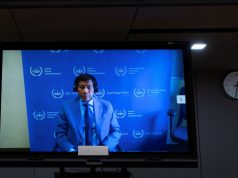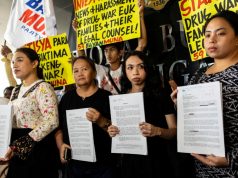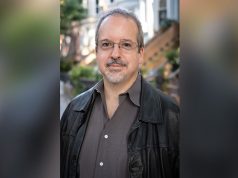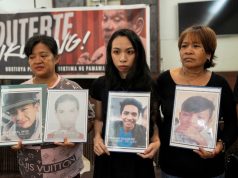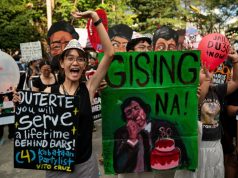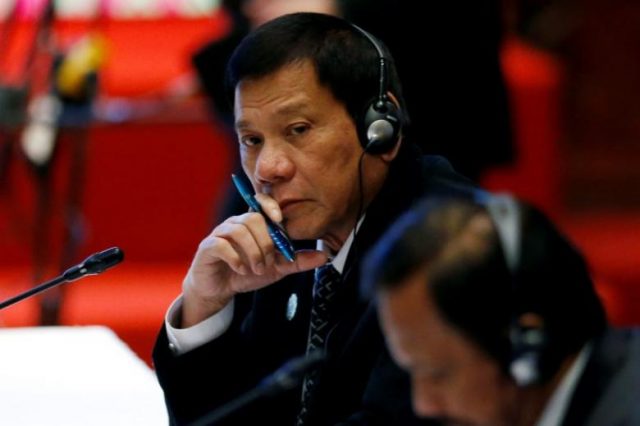
Tradition, apparently, is what impelled the University of the Philippines to offer a Doctorate of Laws to President Duterte 10 months into his presidency. All Philippine presidents have been honored with an offer and had accepted, except two: Joseph Estrada and Gloria Macapagal Arroyo. Estrada, it seems, demurred accepting until a more appropriate time, and then his presidency was overtaken by events. On the other hand, Arroyo declined because she already had a Ph.D. in economics from UP. President Duterte, in turn, declined the offer because he has never cottoned to such traditions. Not when he was mayor, not when he was in Congress and certainly not now.
Kudos to him. He already has two degrees. The first is in Political Science from the Lyceum of the Philippines; the second is his law degree from San Beda. One cannot belabor the point that those two degrees were legitimately earned. He studied for them, he passed the exams, which is more than you can say for some elected officials. He has attended enough commencement exercises and has walked across the stage to receive a diploma twice already, so without having to say so, he is “been there, done that.” Apparently, he doesn’t care to re-live the experience, even if the honor is to be conferred by the premiere state university in the country.
Yet it is a delicate position he is in. Had he accepted, the howls would have been deafening. As it is, the mere offer sufficed to offend a lot of people, many of them UP students and alums, who decidedly would have preferred that any honorary degree be conferred mortis—not honoris—causa. The uproar stems from the President’s style of leadership and the focus of his administration. His critics zero in on his single-minded obsession with illegal drugs which, to be fair, is indeed a major scourge afflicting the country. However, the body count of Oplan Tokhang—in the thousands and counting—is unacceptable, and with those many cadavers, the stench cannot be ignored. As it is, he declined—as opposed to rejecting because a rejection would have been too harsh an action—for both personal and official reasons, which should have been enough to still all objections, but even the act of declining did not appease his critics.
Of course it did not help that the President’s oldest son felt
compelled to weigh in with some rather graceless remarks of his own. Granted, this family is not exactly known for its graciousness, but when a member of the First Family tweets, “To the so-called learned individuals who frown upon the plan of the University of the Philippines to grant an honorary doctorate degree to the President, you can have that honorary degree for all we care,” it shows an inability to accord respect. UP made the offer with only honorable intentions, so to have it thrown in its face by someone to whom it was not proffered—the honorary Ph. D. was intended solely for the father, not the son, so I cannot explain why the pronoun suddenly became “we”—shames the offeror. Plus, it also debases the value of the honor.
The question now is: why was the offer made in the first place? Tradition is not a good enough answer, not now, especially not after this debacle. As a top-tier institution, UP has the liberty to confer honorary doctorates on whomever it pleases, but the concept of such must find basis in worth. For example, an honorary doctorate in fine arts can be granted to individuals whose exemplary performance, creative works, scholarly output and productive advocacy in the field of performing and visual arts have brought honor and distinction to the awarding institution and to the country at large. An honorary doctorate in public administration can also be awarded to individuals who have distinguished themselves in and contributed so much to the management and administration of public services. Outstanding teachers may be lauded for their achievements with an honorary doctorate in pedagogy.
A Doctorate of Laws, which is what was offered to the President, is given to outstanding citizens who are lawyers, politicians, public servants and statesmen who have contributed so much to and distinguished themselves in international understanding, leadership, and the rule of law.
Well, President Duterte is certainly a lawyer, a politician and a public servant, but the jury is still out whether he has contributed so much to and distinguished himself in international understanding, leadership and the rule of law. It is simply too early in his presidency to make a satisfactory conclusion as to that, and indeed, many are of the mind that the extrajudicial killings under his watch negate any claim that he has contributed much to the rule of law.
To at least one member of the President’s family, it’s enough that the father won Malacañang. There is therefore no need to gild the lily with an honorary doctorate. Mere victory at the polls, however, is not the measure of achievement. It is what the winner accomplishes in office after winning that should count.





